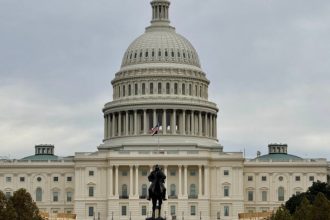The Institute for Fiscal Studies (IFS) has recently evaluated the United Kingdom’s approach to fiscal policy, highlighting the limitations of focusing solely on debt and deficits. The evaluation, known as the Green Budget, explored the possibility of transitioning to a broader measure that includes public sector net worth. However, the IFS concluded that while this shift could provide a more comprehensive view of the country’s fiscal health, the potential costs might not justify the benefits.
The IFS’s scrutiny comes in response to concerns that an exclusive focus on deficits can lead to misguided fiscal decisions. This perspective has been supported by historical examples within the UK, such as the controversial sale of the student loan book and reduced public investment following the financial crisis. These actions have been criticized for their short-term focus and potential long-term detriment to the country’s economic stability.
The article emphasizes the need for governments to consider their balance sheets with as much care as private companies do. This approach is advocated by Sir Dieter Helm of Oxford University, who argues for the protection and enhancement of a country’s natural capital alongside its physical and human capital. By broadening the scope of fiscal health beyond just debt and deficits, governments could potentially make more informed decisions that benefit their countries in the long term.
Despite these arguments, adopting such a comprehensive measure is not without its challenges. According to 2021 data from the International Monetary Fund (IMF), the UK’s public sector net worth was negative 96 percent of GDP—a figure only surpassed by Italy among G7 nations. This statistic underscores the significant financial position that governments like the UK must manage and suggests that transitioning to a wider fiscal measure could be a complex endeavor.
The Green Budget’s analysis indicates that while there is merit in considering a wider array of factors when assessing a nation’s fiscal policy, careful consideration must be given to whether such changes can be implemented effectively without incurring prohibitive costs. The ongoing debate reflects a broader conversation about how best to ensure fiscal responsibility while fostering sustainable economic growth.
This article was generated with the support of AI and reviewed by an editor. For more information see our T&C.
Read the full article here





